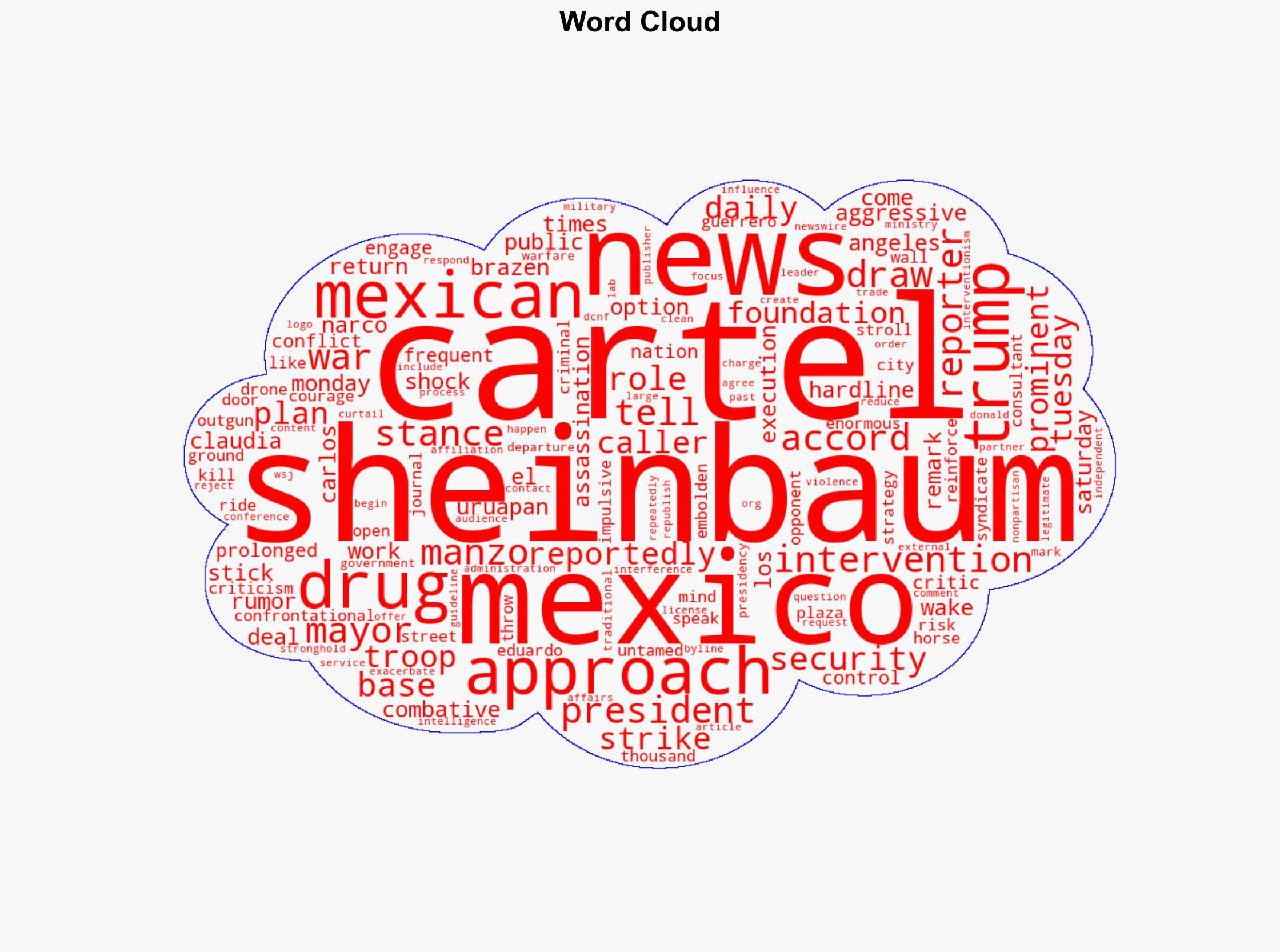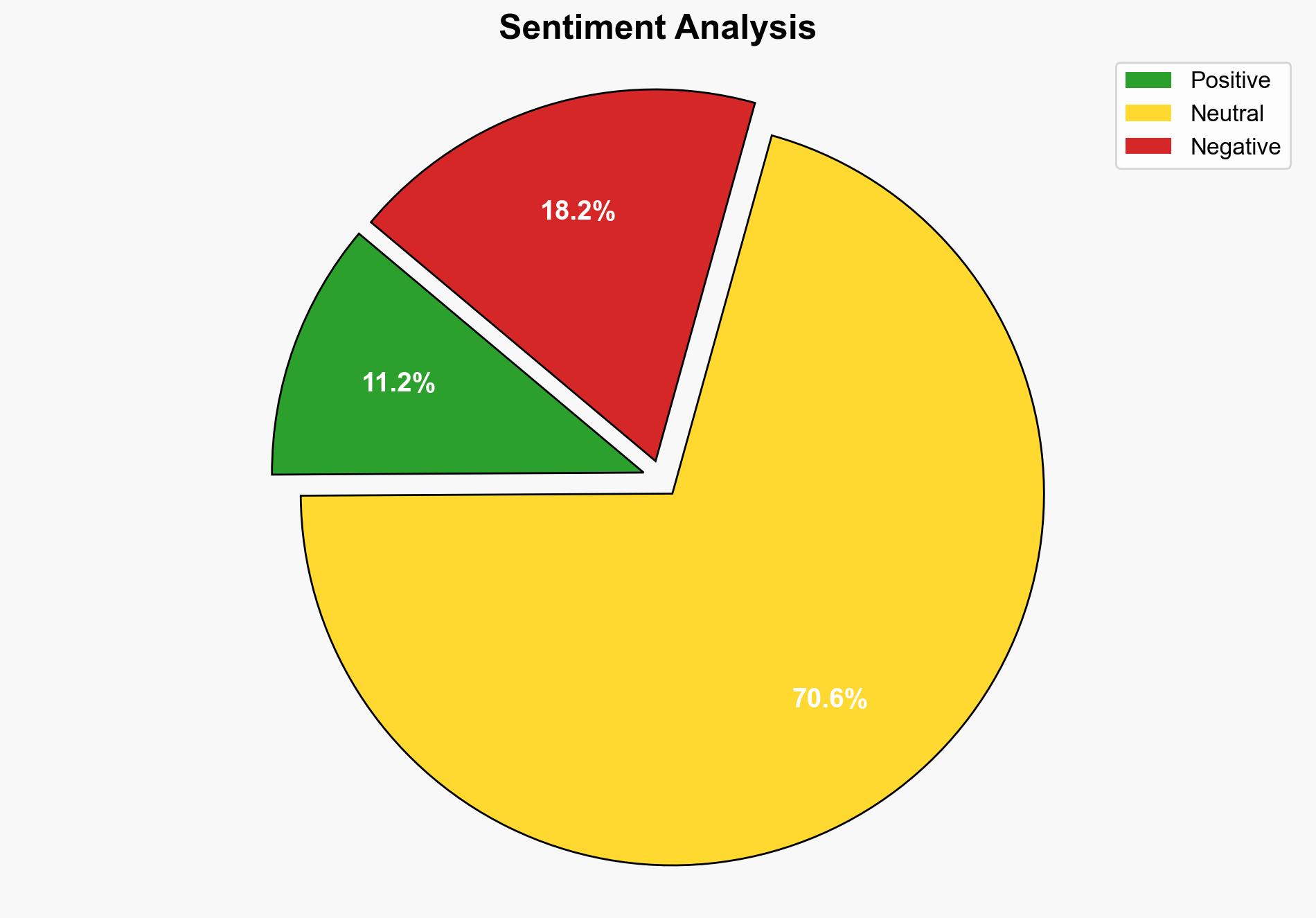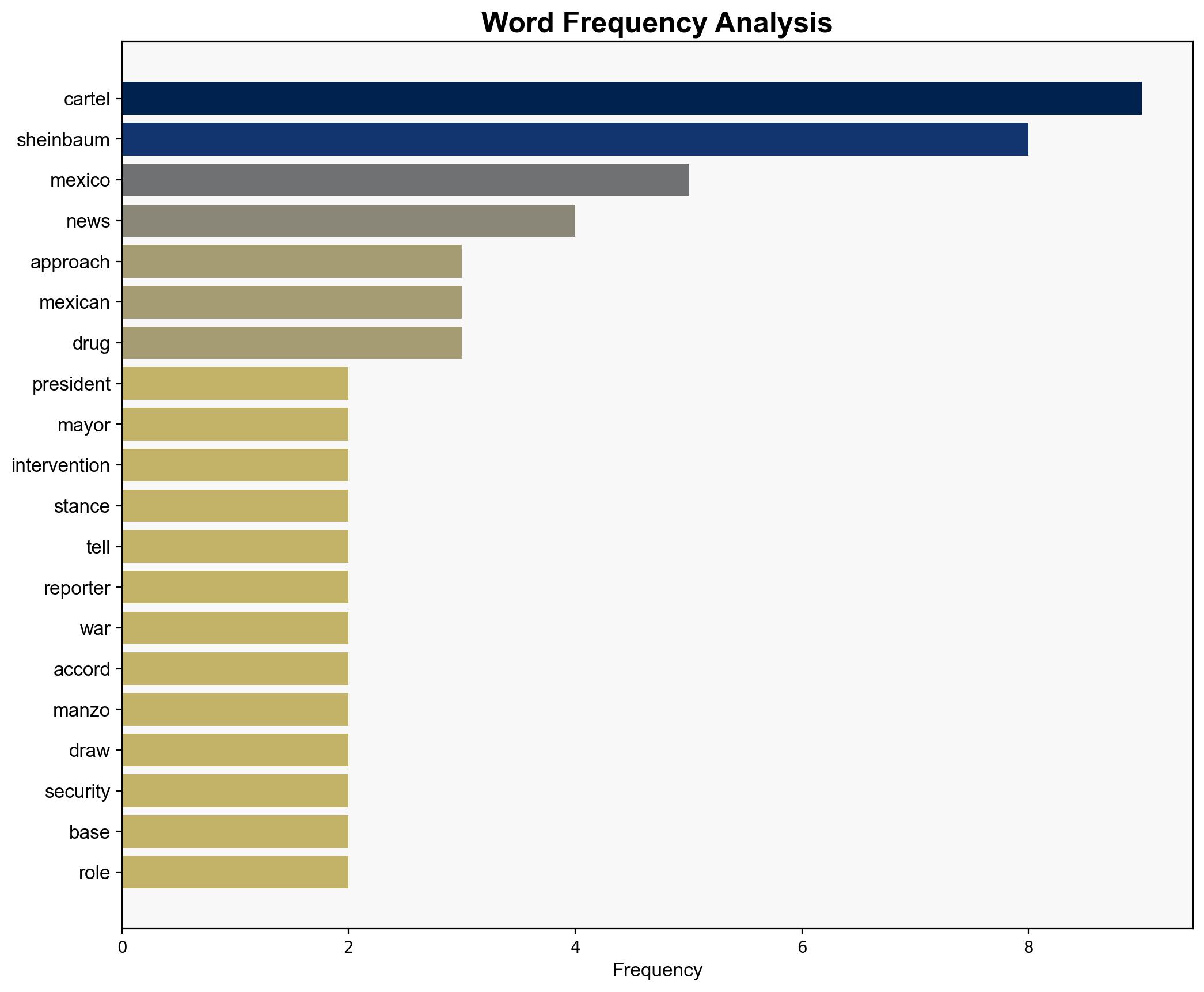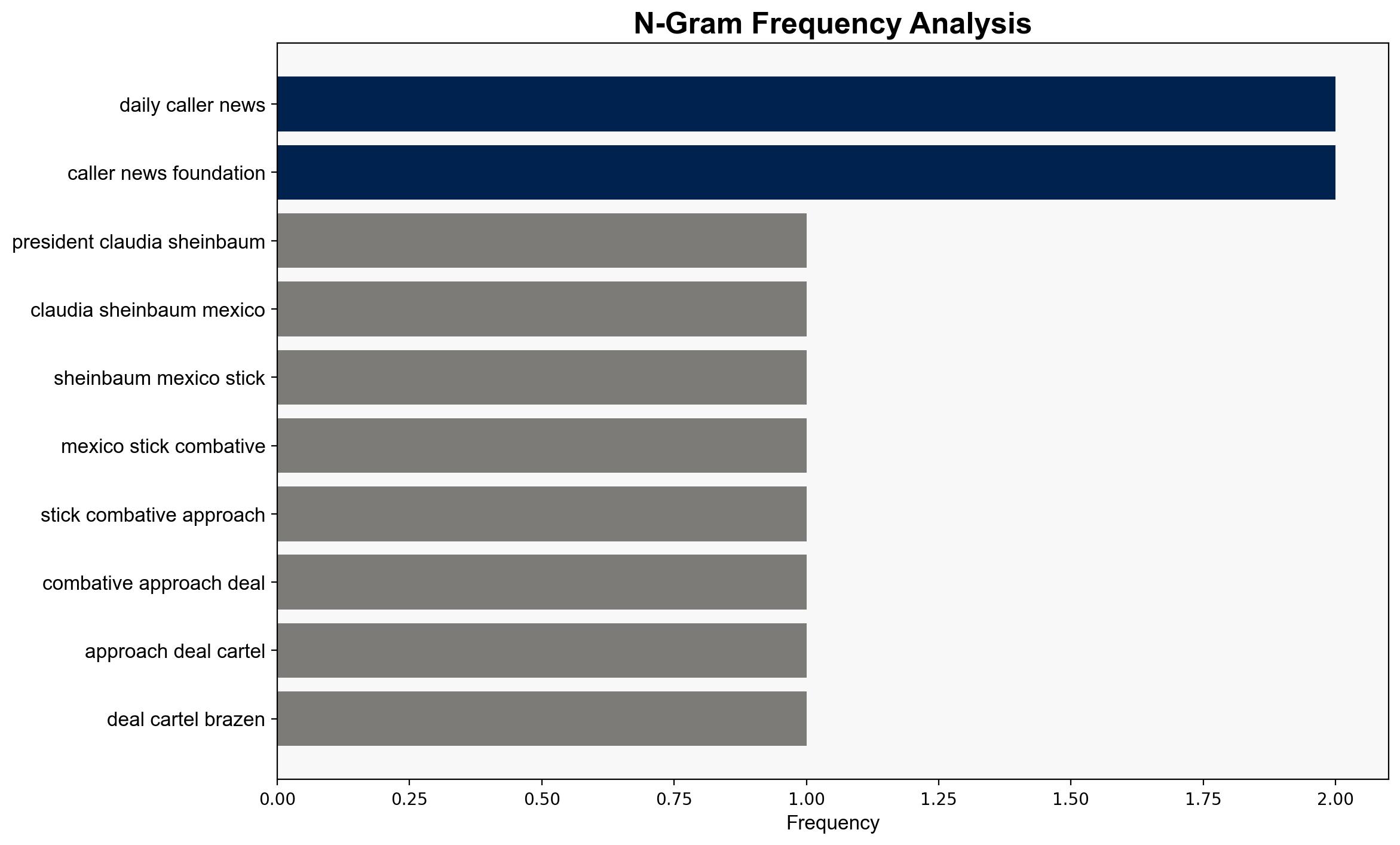Mexican President Wont Crack Down On Cartels Despite Assassination Possible US Intervention – The Daily Caller
Published on: 2025-11-04
Intelligence Report: Mexican President Wont Crack Down On Cartels Despite Assassination Possible US Intervention – The Daily Caller
1. BLUF (Bottom Line Up Front)
The most supported hypothesis is that President Claudia Sheinbaum’s strategy of avoiding aggressive military action against cartels is intended to prevent further violence and maintain sovereignty, despite potential US pressure for intervention. Confidence in this assessment is moderate due to limited corroborating evidence and potential biases in reporting. Recommended action includes diplomatic engagement with Mexico to address mutual security concerns while respecting its autonomy.
2. Competing Hypotheses
1. **Hypothesis A**: President Sheinbaum’s refusal to crack down on cartels is a strategic decision to avoid exacerbating violence and to maintain national sovereignty against foreign intervention.
2. **Hypothesis B**: President Sheinbaum’s stance is primarily influenced by internal political pressures and a lack of capability to effectively combat cartels, rather than a strategic choice.
Using the Analysis of Competing Hypotheses (ACH), Hypothesis A is better supported by the evidence of Sheinbaum’s consistent public statements against military intervention and her emphasis on intelligence-based approaches. Hypothesis B is weakened by the lack of concrete evidence of political incapacity or overwhelming internal opposition.
3. Key Assumptions and Red Flags
– **Assumptions**: It is assumed that Sheinbaum’s public statements accurately reflect her strategic intentions. It is also assumed that US intervention is a credible threat influencing her decisions.
– **Red Flags**: The potential bias in media sources and the lack of direct statements from US officials about intervention plans raise questions about the accuracy of reported US intentions.
– **Blind Spots**: Limited insight into internal Mexican political dynamics and cartel responses to Sheinbaum’s strategy.
4. Implications and Strategic Risks
– **Escalation Risks**: Continued cartel violence could provoke unilateral US action, straining diplomatic relations.
– **Geopolitical Impact**: US-Mexico relations may deteriorate if perceived as undermining Mexican sovereignty.
– **Economic Consequences**: Prolonged cartel activity could destabilize regional economies and disrupt trade.
– **Psychological Effects**: Public perception of government weakness may embolden cartels and undermine public trust.
5. Recommendations and Outlook
- Engage in diplomatic dialogue with Mexico to reinforce cooperation on security issues, emphasizing respect for sovereignty.
- Monitor cartel activities and US policy shifts to anticipate potential escalation.
- Scenario Projections:
- Best Case: Enhanced US-Mexico collaboration leads to effective cartel containment without military intervention.
- Worst Case: Unilateral US action leads to diplomatic fallout and increased violence.
- Most Likely: Continued tension with periodic cartel violence and diplomatic negotiations.
6. Key Individuals and Entities
– Claudia Sheinbaum
– Carlos Manzo
– Eduardo Guerrero
– Donald Trump
7. Thematic Tags
national security threats, regional focus, geopolitical strategy, US-Mexico relations





